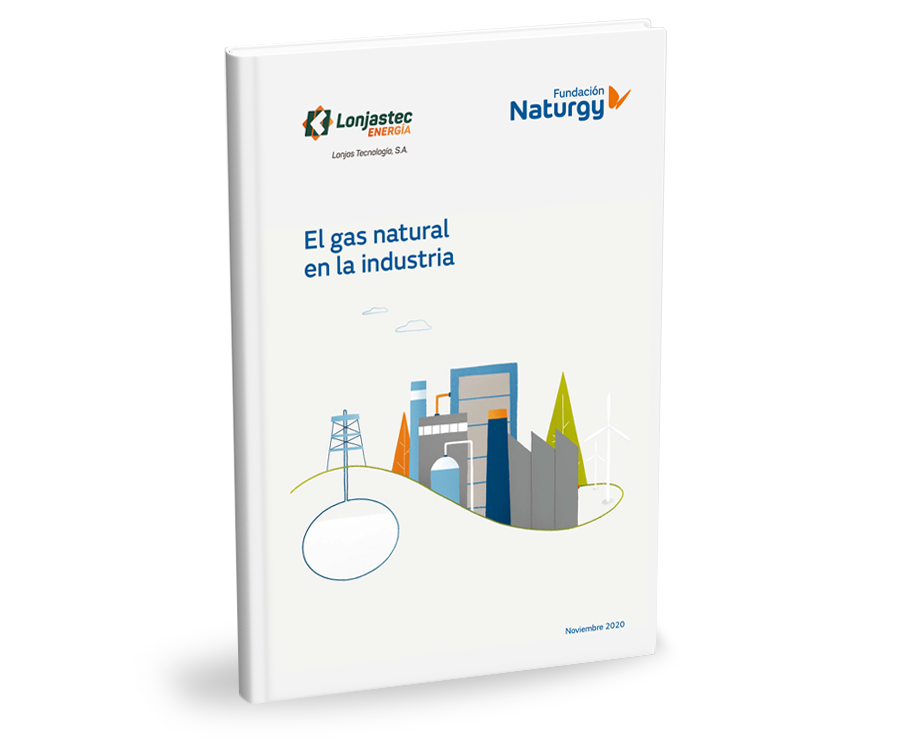Cogeneration plants need renewal plan to maintain their contribution to decarbonisation targets and industry competitiveness
A study claims that renewal plans are needed for existing cogeneration plants, which prevent around four million tonnes of CO2 emissions per year.
These plants are key to maintaining energy efficiency in processes and represent a major factor in company competitiveness.
Over 80% of the energy produced by these facilities is transformed through natural gas, the use of which leads to a significant emissions reduction.

Cogeneration plants prevent approximately four million tonnes of CO2 emissions per year, thereby contributing to economic decarbonisation under the European Green Deal.
It is therefore necessary to develop plans that incentivise the renewal of existing facilities. This claim is made by the authors of a report entitled “Natural gas in industry” from Lonjas Tecnología, S.A., a global energy sector company specialised in the engineering and construction of cogeneration and renewable energy facilities.
At present, cogeneration plants in industry account for more than 90% of the total installed cogeneration power in Spain. The country has over 5,000 MW of cogeneration power, providing 23% of the thermal energy consumed by industry and 13% of total electricity consumption in Spain, according to this report published by the Naturgy Foundation.
“For this technology to maintain its contribution to saving primary energy sources and reducing greenhouse gas emissions (4 Mt CO2), plans should be developed to incentivise the renewal of existing facilities”, say the authors of the study.
A high percentage of cogeneration plants will reach the end of their profitable life over the next ten years, which is what has compensated industries for their investment efforts to make this type of facility profitable, as well as to keep them operational.
In the case of Spain, the Spanish Integrated National Energy and Climate Plan (PNIEC) submitted to the European Commission provides for the renewal of 1,200 MW of the 2,400 MW of cogeneration power over the next ten years. “This measure will lead to an increase in primary energy source consumption and air emissions, as well as a loss of competitiveness for many companies in our industrial sector that currently use cogeneration technology, meaning that re-evaluation should be considered”, say the authors.
One aspect that all of the European national plans submitted to the EU for contributing to decarbonisation and renewable energy targets is the goal of increasing energy efficiency, which is mainly achieved through cogeneration in the industrial sector.
The importance of natural gas in cogeneration
According to the report, “this considerable level of development of cogeneration in industry is a clear indicator that the use of this technology to supply the thermal energy needed by their processes is a clear competitiveness factor for industry”. In this regard, the document highlights the importance of the industrial sector “not only in terms of energy consumption but also in terms of generating wealth and jobs”.
“In this sector, the use of natural gas as a source of energy has been and continues to be important, especially at cogeneration facilities, which, besides boosting the competitiveness of companies, also make a significant contribution to the reduction of primary energy source consumption and greenhouse gas emissions”, insist the authors.
Over 80% of the energy produced by these facilities is transformed using natural gas, which accounts for 40% of total natural gas consumption by industry in Spain.
In this regard, the authors state that, “in the current context of energy transition, and bearing in mind the difficulties faced by renewable energy sources to meet industry’s demand for thermal energy, natural gas plays a fundamental role because it is a sources of energy with the availability, capacity and reliability to meet these demands, with fewer emissions and efficient capacity, so that it may achieve a greater emissions reduction in industry when mixed with other fuels, such as renewable hydrogen, in the future”.
Naturgy Foundation
This new report is part of the activities that the Naturgy Foundation carries out on issues related to energy and the environment, based on serious and rigorous debate, with the fundamental objective of promoting the rational use of energy resources and encouraging sustainable development. Set up by the power company in 1992, the foundation is also engaged in social action programmes both nationally and further afield, by influencing particular initiatives aimed at alleviating energy vulnerability.
Share